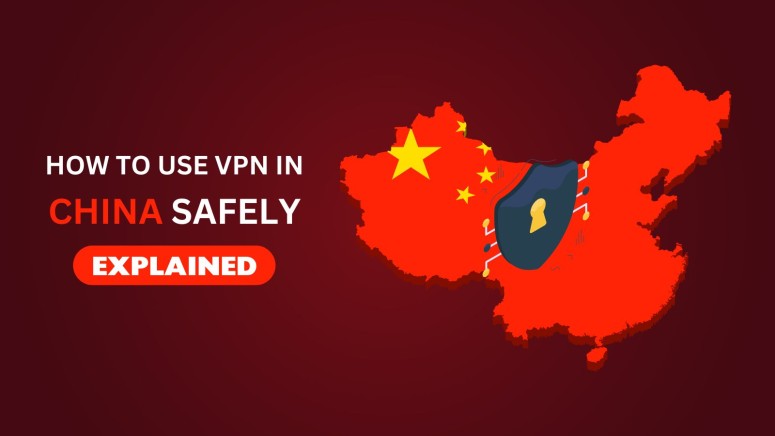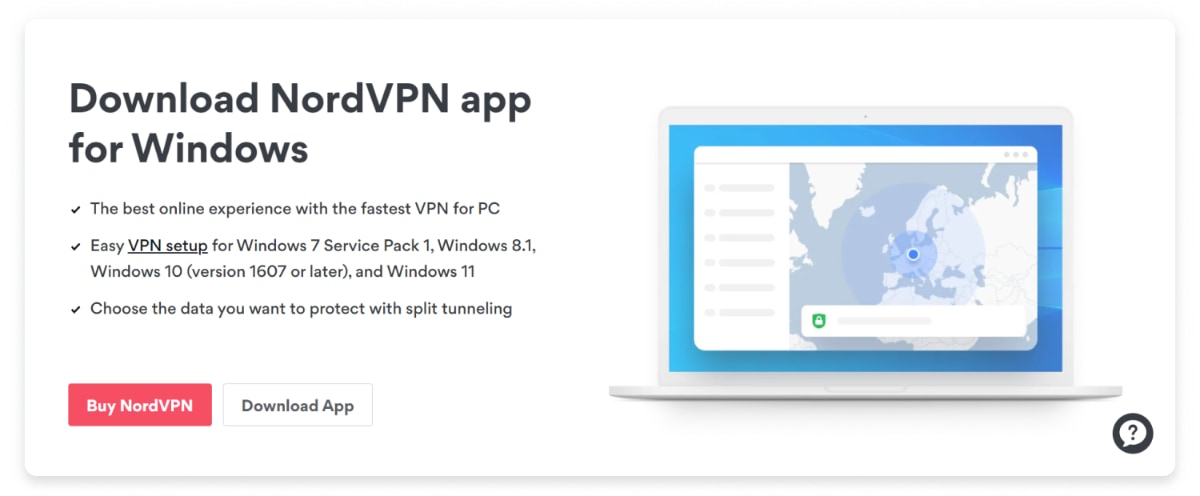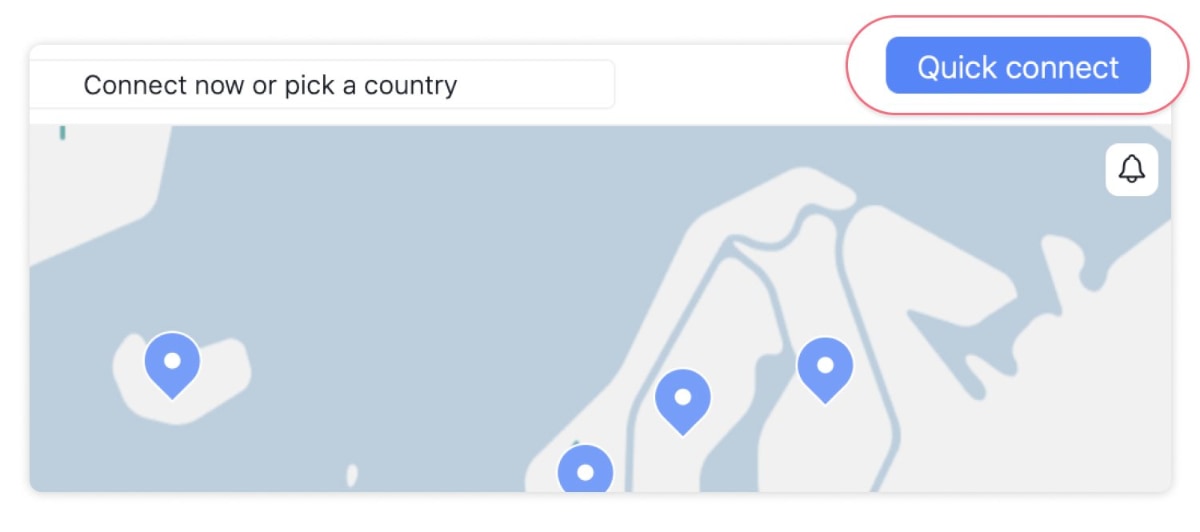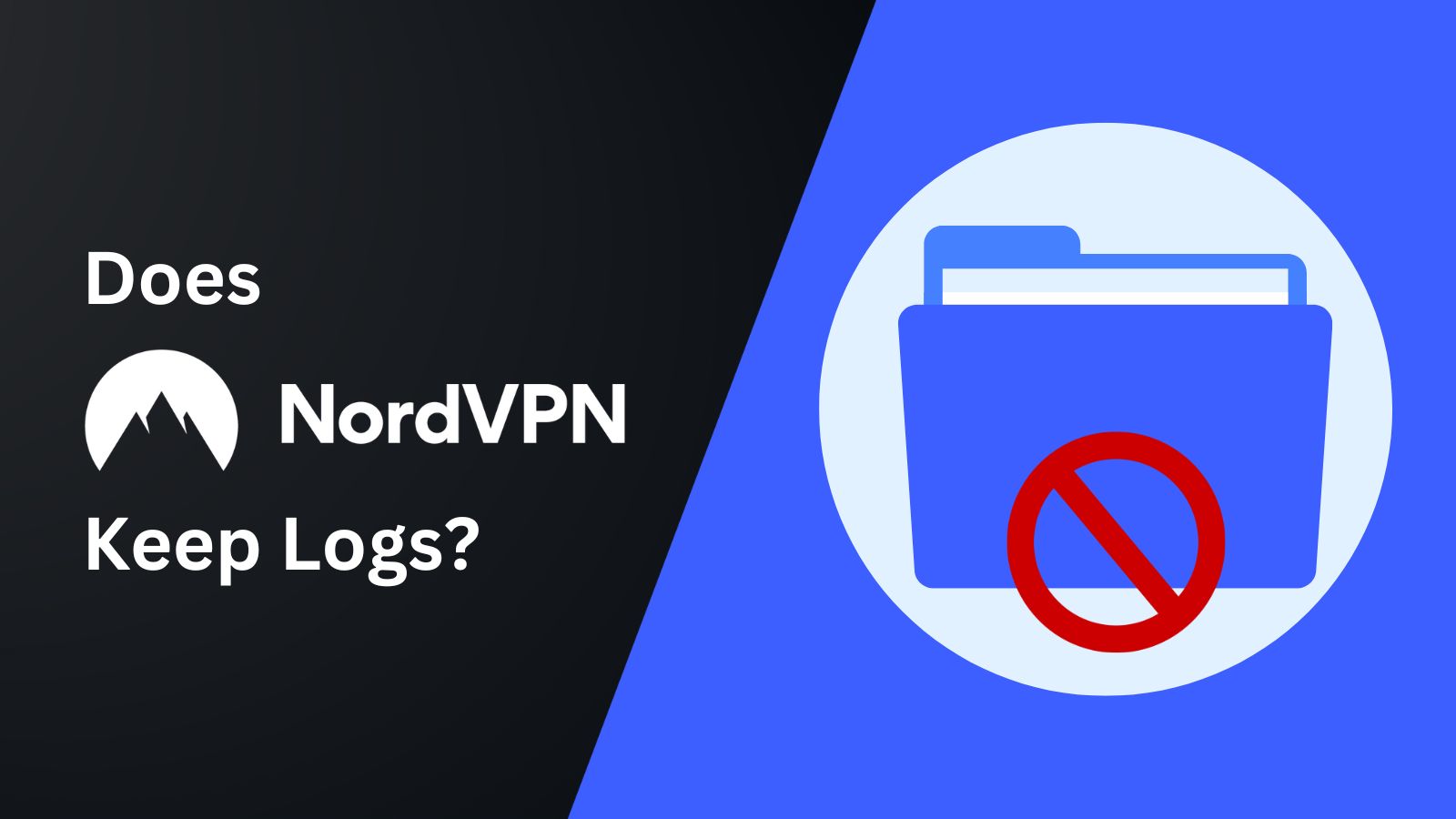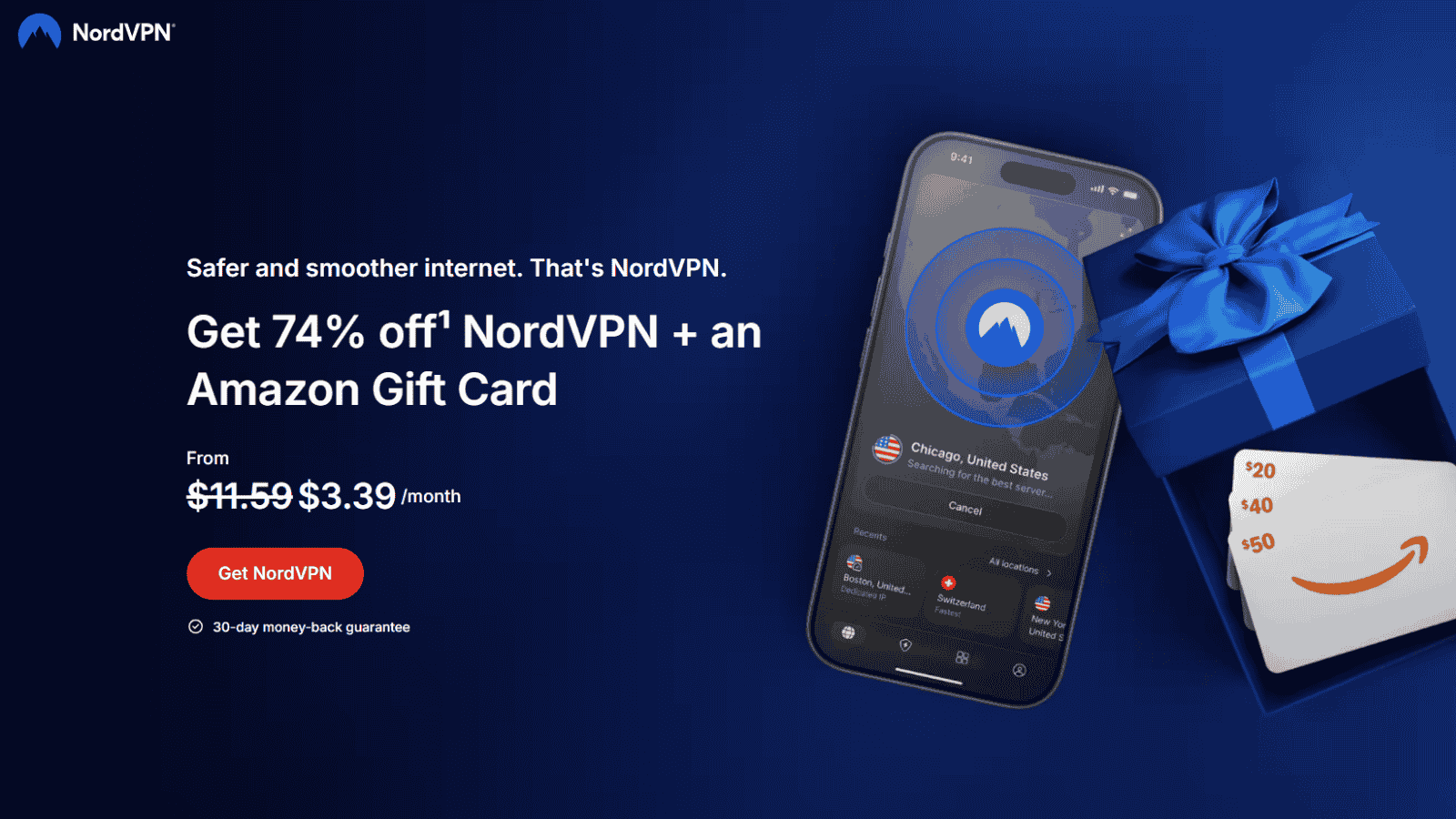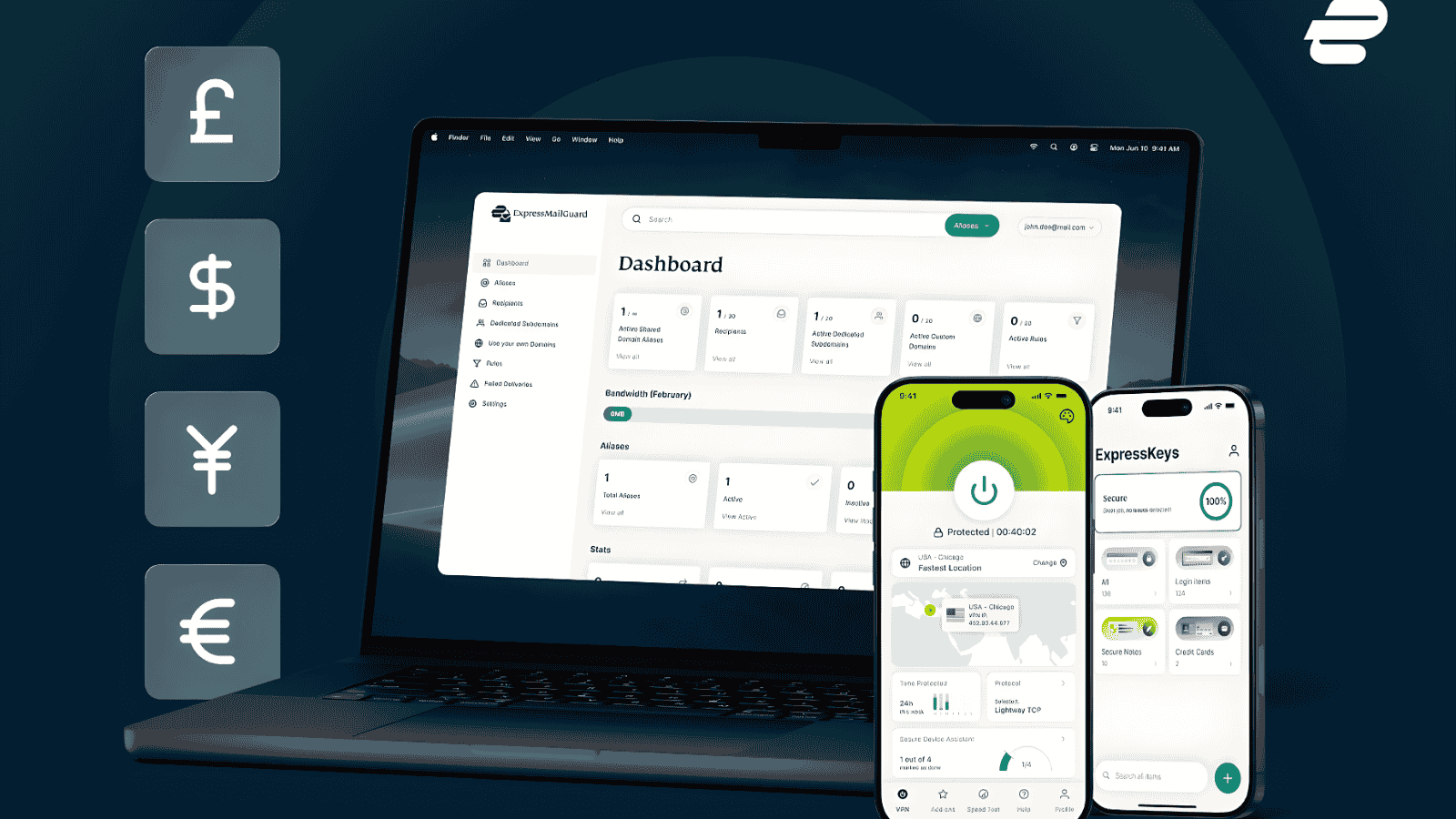
When you purchase through links on our site, we may earn an affiliate commission. Here’s how it works.
How to Download and Use a VPN in China in 2026?
Unlike most countries, China imposes heavy Web restrictions that affect both residents and travelers. The country's authorities have created the Great Firewall of China to filter outgoing and incoming connections. As a result, many of the world's most popular sites don't work there, such as Facebook, Google, YouTube, Instagram, Wikipedia, WhatsApp, Twitch, and more.
That said, it's no surprise that VPNs (Virtual Private Networks) have become hugely popular. However, China blocks VPNs through DPI (deep packet inspection), so finding a VPN that still works reliably is a very difficult task. In other words, you'll need to make an effort to find a VPN to unblock your access to the Web, safeguard your digital privacy, and communicate with those outside of China.
In this guide, we'll discuss the best VPN to use in China and show you how to download a VPN in China. We'll also explain why does China ban VPNs, what the country's VPN law says about VPNs, and talk about the punishments for using a VPN in the country. We'll finish with a round of helpful FAQs.
How to Use a VPN in China
To use a VPN in China, you need to subscribe to a proven VPN that works in the country, download its app, and then connect to a server outside the VPN. Here's our quick guide on using a VPN in China:
- China's internet is heavily restricted by the "Great Firewall," which blocks many popular websites and services (like Google, WhatsApp, YouTube, Instagram, and many news sites). To bypass these, get a VPN proven to work in China (we recommend NordVPN).
- Before arriving in China, download and install the NordVPN app on all devices you plan to use, Windows PC, macOS, Android, iOS, tablets, and even browser extensions. If you’re already in China, try using alternative download links or a friend’s hotspot that already has VPN access.
- Visit the general download center of your VPN and select your device. Be sure to get the latest version for optimal performance and access to all features, including obfuscated servers.
- Follow the installation prompts to install the NordVPN app on your device. Once installed:
- Open the application
- Enter your NordVPN account credentials (email and password)
- If you don't have an account yet, you'll need to sign up at website before arriving in China.
- Enable key security features before using VPN safely:
- Kill Switch – Ensures your real IP never leaks if the VPN disconnects.
- Obfuscation – Masks VPN traffic so dating apps can’t detect you're using one.
- DNS Leak Protection – Keeps your real location hidden by securing DNS requests.
- Split Tunneling – Route only your dating apps through the VPN, keeping other apps local for speed.
- Ad & Tracker Blockers – Built-in tools that block trackers often embedded in dating platforms.
- VPN apps typically let you: Use a “Quick Connect” or “Smart Connect” button to automatically connect to the best server. Manually pick a server from a country list or interactive map. Avoid servers located inside China, they won’t help you bypass restrictions.
- Once you've chosen your server and activated obfuscation (if needed), tap or click “Connect.”
Why Do You Need a VPN in China?
You need a VPN in China to protect yourself against tracking and unblock your access to the Web. The Great Firewall of China tracks your every move, which means that Internet users in the country have absolutely no privacy. On top of that, hundreds of popular sites and online services worldwide are not available in China.
A VPN encapsulates your Web traffic, making it invisible to your Internet provider and your country's authorities. In addition, you can get a foreign IP address by connecting to a VPN server in a foreign country. That's how a VPN helps you bypass geo-blocks and China's censorship. In other words, a VPN makes your access to the Web safe, private, and open.
Of course, very few VPNs are capable enough to bypass China's anti-VPN systems. That's why we highly recommend NordVPN, which has proven to be the best VPN to use in China (we advise you check out all our recommendations first and then go for the one that suits you the best). It offers high-end security and 8,900+ servers in 129 countries, so you'll get to unblock practically any website.
How to Download a VPN in China - 7 Tested Ways
To download a VPN in China, you need to find alternative ways to get the VPN software on your device. VPN websites are mostly blocked in the country, so you'll have to rely on alternative ways to visit your VPN provider's website or obtain VPN software in some other way.
For example, you can download your VPN app before going to China, use hotel Wi-Fi, or go with a mirror link (if your VPN provider offers that option). Also, you can use your home country's SIM card, sideload VPN files on your Android device, ask an acquaintance for setup files, or download VPN software while you're abroad. Let's take a closer look.
1. Download the VPN App Before Leaving for China
If you're planning a trip to China, the easiest way to download a VPN there is to do it before leaving. That way, you have it installed on your phone and ready to go when you arrive. Just visit your device's Play Store or iOS App Store and get the app from there. If you use a computer, install your VPN manually, and you'll have it ready to be used.
There have been cases of the Chinese police uninstalling VPN apps from people's phones. That likely won't happen to you, but if you want to have a backup, bring a USB flash drive or memory card with you that contains a copy of the VPN's installation files.
2. Use Hotel Wi-Fi
Surprisingly, some hotels in China don't censor the Web so heavily. While you can't access everything you normally can in other countries, you can download VPNs, at least. The following hotels reportedly have unrestricted Internet access: Mariott, Pangy 7 Star, Intercontinental, Crowne Plaza, Hilton, Shangri-La, Wyndham, and Starwood.
If you're a tourist, you don't need to do anything special; just use the hotel's Wi-Fi, and you'll get to download a VPN in China without any fuss. If you're staying at an apartment or live in China, though, head over to the nearest hotel, grab a cup of coffee or beer at its cafe or bar, and use the Wi-Fi to get your VPN app.
3. Use Mirrored Sites
Many VPN providers offer mirrored websites to allow those from restricted countries to access their official website and get the software they need. Mirrored websites look identical to the original, except for their URL (which you can see in your browser's address bar).
That said, it's best to find mirrored websites by contacting your VPN's support. They need to send you a fresh and up-to-date list of URLs you can use. We're saying that because mirrored websites can easily be malicious, prompting you to download malware-infested software.
4. Use a SIM Card From Your Home Country
If you're traveling to China and have a foreign SIM card in your phone, you can set it to international roaming, which will give you access to your home country's Play Store/App Store. So, you'll be able to download a VPN just like you would back home.
Of course, keep in mind that roaming can be costly, and even though most VPN apps are small in size, the total expense could be high. Once you've downloaded your VPN app, you can switch to a Chinese SIM card, which won't interfere with the apps you already have on your phone, including your VPN.
5. Use APK Files for Smartphones
Android users can sideload apps and get a VPN in China that way. To do so, find your VPN's APK file online, download it on your device, and install the software manually. So, just like installing any software on your computer, for example. That's how you can bypass the Google Play Store.
Use a reliable source of APK files, such as APKMirror.com. If you download APK files from random websites, they might contain malware. In addition to using reputable repositories of APK files, we recommend using an antivirus app on your phone.
6. Ask a Friend for the Setup Files
If you have a friend abroad, you ask them to download the installation files and send them to you over the Internet. Also, if you have a friend who can use a VPN in China, you can tether to their device to download your own VPN via the Wi-Fi hotspot option.
If you can't sign up for a VPN account in China, you'll have to send them money to do it for you. Some transfer options include Western Union, Chinese banks, PayPal, and cryptocurrencies (probably the best option). If you already have an account, though, just send them the login credentials.
Once they download the files, they can send them over to you in an encrypted ZIP archive. WeChat apparently works pretty well for file transfers. If they need to send larger files (25+MB) for some reason, they can try using WeiYun (run by the same company that made WeChat).
If your friend plans on visiting soon, they could transfer the setup files using Bluetooth when you meet. Or they could just bring them on a USB flash drive or external HDD/SSD, which allows you to start using a VPN in China while having access to local installation files.
Once you get the files, install the VPN app, and start using it to unblock the Web.
7. Take a Quick Trip to Hong Kong, Macau, or Taiwan
When everything else fails, you'll have to take a day trip to places such as Hong Kong, Macau, or Taiwan. If you're traveling to China, you probably thought of visiting those places anyway.
While those regions have problems with Chinese interference and surveillance, the Internet isn't heavily censored there yet, so you can use it to download the VPN apps you need.
Quite an expensive workaround, we know. That's why we kept it for last.
Common Misconceptions About VPNs in China
When it comes to using a VPN in China, there’s no shortage of myths and half-truths floating around. Some travelers think VPNs are outright banned, while others assume foreigners can do whatever they want online. The reality is more nuanced, and understanding it can help you stay connected and stay within the law.
Here’s a breakdown of the most common misconceptions and the facts that clear them up:
Why Does China Ban VPNs?
China bans VPNs because this type of software allows users to bypass the country's 'Great Firewall' and circumvent its strict digital blocks. That said, you need to understand that its government tightly controls China – and this applies to the flow of information as well.
It all started as a way to control political groups that were deemed dangerous by Chinese officials. Here, we’re talking mostly about Taiwanese and Tibetan separatist groups. As a way to control their influence, websites, and forums started to get blocked a while ago.
However, these groups have started using other means to spread information, mostly over social media. Therefore, services and websites like Facebook and Google were forced to withdraw from this country or remove certain features.
Still, China understands that it’s impossible to ban VPNs altogether – and this especially applies to business organizations. So, instead of getting a VPN banned in China completely, this country has decided to regulate VPN services and create a list of licensing options.
What’s the Punishment for Using a VPN in China?
Officially, the punishment for using a VPN in China ranges from 1,000 yuan (if you're just a user) to 5 years of jail time (if you operate and distribute unlicensed VPNs). That said, we'll note that no foreigners were punished for using a VPN, but you might be asked to delete your VPN app(s).
Many experts agree that the Great Firewall of China is built to discourage regular Web users from accessing censored websites. After all, bypassing the firewall is relatively easy and all you need is a reliable VPN. Therefore, the main goal of this action isn’t to catch those using a VPN.
Using VPNs within legal limits will not get you in trouble. However, selling VPNs is a tricky business. There were reports of a man sentenced to 9 months in jail for selling VPNs. Yet, we haven’t seen any other news of the authorities punishing individuals for using VPNs.
Final Thoughts
The fact is that China isn't friendly towards VPNs. Furthermore, the country constantly develops its content-blocking systems, so downloading and using a VPN in China can be quite problematic. That said, you still have plenty of options. A capable VPN can still help you bypass the Great Firewall and access blocked websites - all while ensuring that your Web data remains undetectable.
We recommend NordVPN as the best VPN to use in China in 2026 because it has high-end features that can unblock the Chinese Web. Aside from that, you get tons of servers, the ability to visit any site, and you'll also get fast and stable performance. There simply is no better option, no matter if you live in China or planning to travel to this country.
Explore These Helpful VPN Guides to Stay Informed and Protected:
- Can VPNs Be Hacked? Discover the real risks and learn how secure VPNs are when it comes to safeguarding your personal data.
- Do VPNs Prevent DDoS Attacks? Find out how VPNs can protect you from DDoS threats, especially useful for gamers and streamers.
- How to Test for VPN Leaks: The Complete Guide Learn what VPN leaks are, how to identify them, and what steps you can take to prevent privacy breaches.
- Free VPN vs. Paid VPN vs. Free Trials: What Should You Choose in 2025? A detailed comparison to help you decide which VPN type best matches your privacy and usage needs.
- Does a VPN Slow Down Your Internet? Here’s How to Speed It Up Understand why performance might drop, and how to optimize your VPN for faster, smoother browsing.
- Top 10 VPN Myths – Debunked Separate fact from fiction with this myth-busting guide to help you make smarter VPN choices.
That would be all on how to download and use a VPN in China. We hope that you've managed to find answers to all of your questions. If not, please don’t hesitate to post a comment below.


